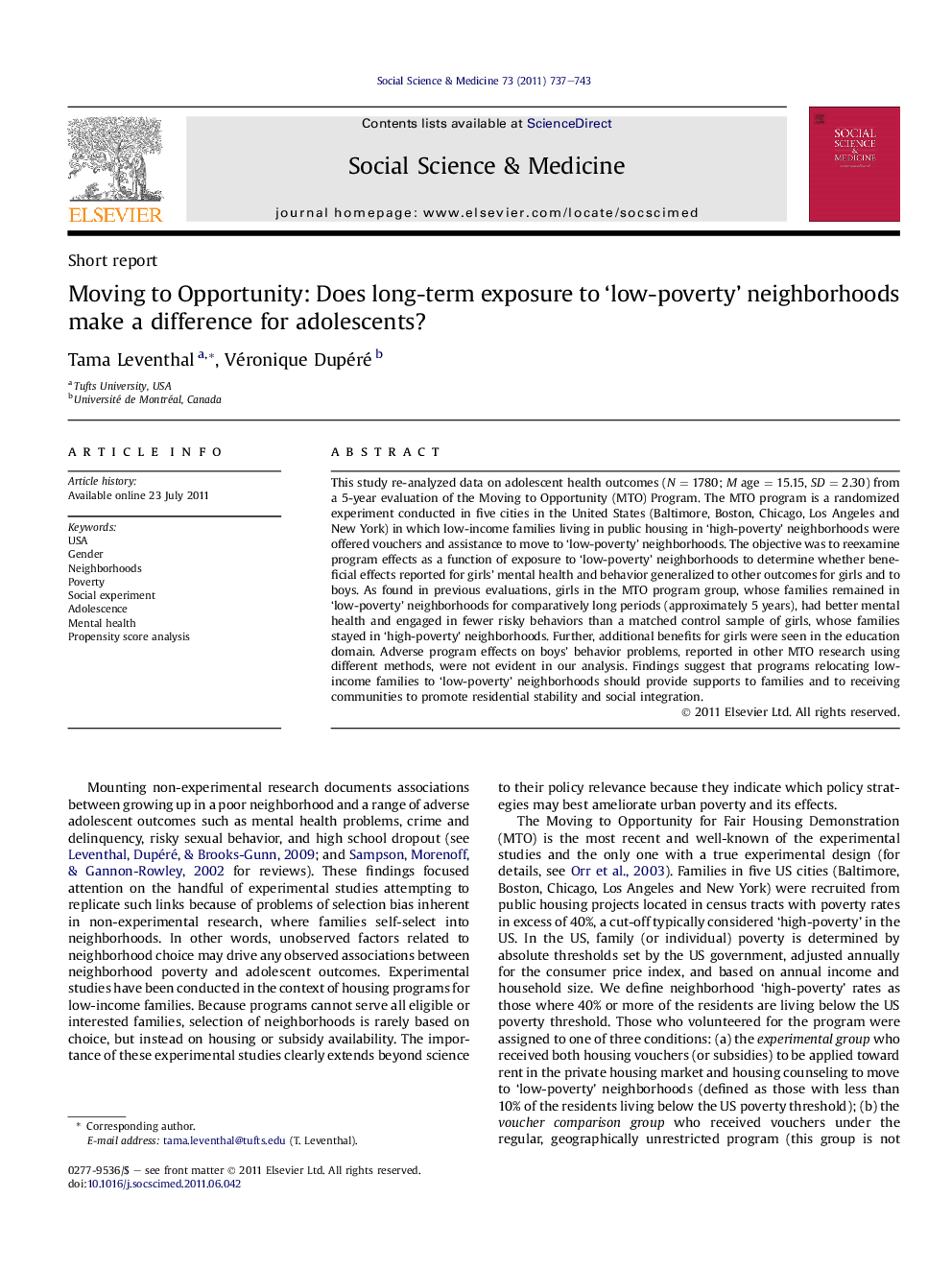| Article ID | Journal | Published Year | Pages | File Type |
|---|---|---|---|---|
| 952575 | Social Science & Medicine | 2011 | 7 Pages |
This study re-analyzed data on adolescent health outcomes (N = 1780; M age = 15.15, SD = 2.30) from a 5-year evaluation of the Moving to Opportunity (MTO) Program. The MTO program is a randomized experiment conducted in five cities in the United States (Baltimore, Boston, Chicago, Los Angeles and New York) in which low-income families living in public housing in ‘high-poverty’ neighborhoods were offered vouchers and assistance to move to ‘low-poverty’ neighborhoods. The objective was to reexamine program effects as a function of exposure to ‘low-poverty’ neighborhoods to determine whether beneficial effects reported for girls’ mental health and behavior generalized to other outcomes for girls and to boys. As found in previous evaluations, girls in the MTO program group, whose families remained in ‘low-poverty’ neighborhoods for comparatively long periods (approximately 5 years), had better mental health and engaged in fewer risky behaviors than a matched control sample of girls, whose families stayed in ‘high-poverty’ neighborhoods. Further, additional benefits for girls were seen in the education domain. Adverse program effects on boys’ behavior problems, reported in other MTO research using different methods, were not evident in our analysis. Findings suggest that programs relocating low-income families to ‘low-poverty’ neighborhoods should provide supports to families and to receiving communities to promote residential stability and social integration.
